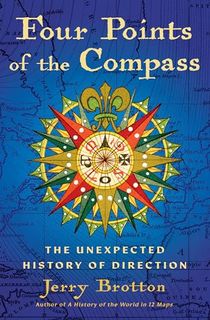With fall on its way and the holiday season just around the corner, the next few months are sure to be a busy time for publishers and readers alike. The great news for history lovers is that the fall of 2024 looks set to be an excellent season for new releases, with a great selection of fascinating new reads from which to choose. Here’s a preview of some of the hottest new history nonfiction coming your way over the next three months.
Release Date: September 10

A Quiet Company of Dangerous Men: The Forgotten British Special Operations Soldiers of World War II
Shannon Monaghan’s A Quiet Company of Dangerous Men provides fascinating insight into the clandestine activities of the British Special Operations Executive (SOE) through the experiences of four officers who served together behind enemy lines for many years.
Following the formation of the SOE in the early years of World War II, the four men were parachuted into Nazi-occupied Albania, where they waged a secret guerilla war alongside local resistance groups. Against all odds, they survived the war and continued to serve in the SOE for decades afterwards, engaging in some of the most dangerous undercover operations of the Cold War era. Given unprecedented access to private family papers, Monaghan’s compelling account of their espionage activities “sets the fictional worlds of Ian Fleming and John le Carrḗ in real-life perspective” (Kirkus Reviews).
Release Date: September 10

Nexus: A Brief History of Information Networks from the Stone Age to AI
In Nexus, Yuval Noah Harari investigates the long and complex history of the man-made information networks that have helped to shape the world since the dawn of time. From the stone tablets devised by prehistoric man to AI in the 21st century, Harari’s thought-provoking account explores how, throughout history, different cultures, religious groups and political movements have created new ways of disseminating information in order to achieve their goals.
Along the way, he raises some fascinating questions about the ways in which information networks have often been manipulated to create an alternative reality and the threat to modern humanity caused by the development of AI.
Release date: September 24

America First: Roosevelt vs. Lindbergh in the Shadow of War
H.W. Brands looks afresh at American influence on global affairs in the period leading up to World War II through the differing perspectives of two of the era’s most influential figures: President Franklin D. Roosevelt and Charles Lindbergh. The President advocated intervention, whilst Lindbergh, an aviation pioneer and national hero—and suspected Nazi sympathizer—favored isolationism. Opposing the prospect of American involvement in another world war, Lindbergh proved a constant thorn in Roosevelt’s side until the President finally succeeded in turning public opinion. Subsequently, the US took its place at the center of the world stage where it has remained ever since.
Brands’ “fine account” (Kirkus Reviews) sheds fascinating new light on this watershed moment in US history, chronicling in vivid detail the cut and thrust of the debate between the two men which appears as relevant today as it was then.
Release Date: October 1

Henry V: The Astonishing Triumph of England's Greatest Warrior King
King Henry V’s reign lasted just nine years, but the man who triumphed against all odds at the Battle of Agincourt in 1415 is generally regarded as one of the most influential monarchs of the Middle Ages. Shakespeare immortalized the life of England’s great warrior king over 150 years later in three of his history plays, depicting Henry’s transformation from playboy prince to revered monarch. Yet, as Dan Jones’ fascinating new biography of Henry V reveals, the medieval king’s transition from callow youth to feared military leader probably started much sooner than has been commonly believed.
The acclaimed historian’s compelling investigation into the real man behind the legend illustrates that the young Prince Henry had already become a dominant figure at the royal court, experienced in both political and military affairs, long before his own accession to the throne in 1413. Told in uncompromising detail, Jones’ thought-provoking reappraisal of one of the medieval period’s most celebrated figures is “full of diverting incident and considered judgement” (Observer UK).
Release Date: October 8

The Elements of Marie Curie: How the Glow of Radium Lit a Path for Women in Science
Dava Sobel’s accomplished biography casts a fascinating new light on the professional and personal life of one of the most influential scientists in history. Marie Curie blazed a trail for women in the field of science during the early 20th century, winning two Nobel Prizes along the way. She has often been previously portrayed as an isolated figure working in a male-dominated environment, but here Sobel sets the record straight, revealing how Curie established a thriving female scientific community in her own Paris laboratory.
Alongside her vivid portrayal of the groundbreaking scientist, Sobel highlights the achievements of these other unsung women, including Marguerite Perey, who discovered the element francium, and Curie’s own daughter, Irène, also a Nobel Prize winner.
Release Date: October 8

A Place Called Yellowstone: The Epic History of the World’s First National Park
Beginning some two million years ago with a massive volcanic eruption that transformed the local landscape, Randall K. Wilson chronicles the epic history of America’s first national park, discovering how this once geographically remote wilderness became one of the country’s most iconic tourist destinations.
Known the world over for its spectacular wildlife and geothermal features, Yellowstone has been rightly acclaimed for its pioneering work in the field of conservation and nature tourism. Yet, as Wilson’s fascinating account reveals, the park has at times also become embroiled in controversy, particularly with regard to its treatment of Native American land rights. The author proves equally adept in dealing with the environmental and human aspects of Yellowstone’s story in this engaging and well-researched history of America’s most famous landscape.
Release Date: November 5

Lincoln vs. Davis: The War of the Presidents
In February 1861, Jefferson Davis became President of the Confederacy. Just a month later, with the Civil War looming, Abraham Lincoln took office as President of the United States. Remarkably the two men never met, but for the next four years pitted their wits against each other in the most bitter of conflicts. The pair were contrasting characters with different skill sets: Lincoln was the more experienced politician, whereas Davis was better versed in military affairs.
In this compelling new dual biography, Nigel Hamilton adopts a fresh approach to the history of the Civil War period by directly comparing and contrasting the experiences and leadership skills of the two men whose parallel presidencies set the tone for the conflict. As well as incorporating plenty of interesting new research into his “immense examination of the Civil War presidents” (Kirkus Reviews), Hamilton is able to provide fascinating insight into what it takes to win and lose a war. Along the way he also introduces his reader to many of the other colorful characters of the era, including the two First Ladies, Mary Lincoln and Varina Davis.
Release Date: November 12

Four Points of the Compass: The Unexpected History of Direction
For millennia, it would have been well-nigh impossible to imagine a world where the four cardinal directions on the compass were not central to travel, navigation and exploration. Yet, in today’s world of GPS navigation technology, we may be approaching a time when they lose their relevance.
This makes Jerry Brotton’s fascinating new history of the four cardinal points all the more timely. Subtitled The Unexpected History of Direction, the author incorporates elements of history, geography and science into his entertaining account. He chronicles the surprising number of differences in the ways in which cultures across the world have understood and defined the cardinal directions over the centuries, “knitting technical information and anecdotes into a vivid tapestry” (Kirkus Reviews). He also has some interesting points to make about the evolving use of these words to reinforce stereotypes in terms like “the Middle East” and “the Western world”.
Featured image: Łukasz Łada / Unsplash








